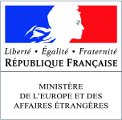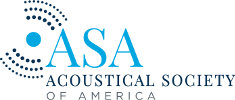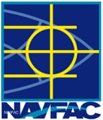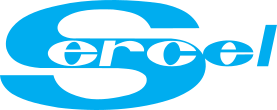Please download the official program with all the abstracts of the 2018 International DCLDE Workshop!
The 8th International Workshop on Detection, Classification, Localization, and Density Estimation of marine mammals using passive acoustics will take place at the University Pierre et Marie Curie in Paris, France, 4-8 June 2018.
The DCLDE Workshop brings together researchers and engineers from universities, research institutes, government organizations, and industry, dealing with all aspects of acoustics, signal processing, pattern recognition, mathematics, and computer sciences applied to the study of the biology, ethology and ecology of marine mammals and also their environment and the potential effects of anthropogenic activities. The goal is to provide a forum for exchange of new results obtained from the latest advances in instrumentation and from the recent methods. Also this workshop will clearly encourage interdisciplinary approaches to create more knowledge on these species.
The DCLDE Workshop will comprise a prominent series of thematic sessions of oral and poster presentations. Abstracts will be published in proceedings to be made available to all registered participants on the first day of the Workshop.
As the previous sessions of the DCLDE workshops, a challenge is offered to compare methods, algorithms, and results. This time will be awarded the team that will best detect and classify the underwater acoustic environment including sounds emitted by mysticeti and odontoceti species among other biological, natural and anthropogenic noises.
Topics
The workshop will deal with engineering sciences including acoustics, signal processing, pattern recognition, mathematics, and computer sciences, dedicated to studies of marine mammals:- detection of pulsed and harmonic sounds
- classification of diverse sounds including clicks, whisles and vocalizations
- localization of marine mammals
- estimation of population density
- acoustic propagation models
- innovative engineering including new materials and tools
- big data analytics
- study of sound generator of marine mammals
- underwater soundscapes: description of environmental acoustics and sounds from human activities
See the official program including the abstracts
Important dates
- Oct 1st, 2017: Opening of participant registration
- Jan 26, 2018: Opening of the dataset for the Challenge
- April 15, 2018: Deadline for abstract submission
- April 29, 2018: Notification of abstract status (accepted or declined)
- May 6, 2018: Deadline for early registration
- June 4th: Thematic tutorial sessions:
- Deep Learning for detection/classification
- Density Estimation
- June 5th, 6th, 7th and 8th:
- Oral presentations
- Posters
- Exhibitions
Committees
Scientific Committee
The members of the scientific committee are researchers from different scientific areas and from different research Teams. The roles of these members are:- to review the submitted abstract, then to accept for an oral presentation or as a poster, or to reject it
- to animate the oral thematic sessions, as chairman according to their scientific interests
Underwater acoustics
- ASCH Mark, LAMFA, Université de Picardie, France
- CRISTINI Paul, LMA, Marseille, France
- FRASIER Kait Frasier, Scripps Whale Acoustic Lab, San Diego, USA
- GERVAISE Cédric, GIPSA-Lab, Grenoble, France
- KINDA Bazile, SHOM, Brest, France
- LE COURTOIS Florent, SHOM, Brest, France
- NOVAK Antonin, LAUM, Le Mans, France
- SILVA Fabrice, LMA, Marseille, France
- ŠIROVIĆ Ana, Scripps, UCSD, USA
- STEPHAN Yann, SHOM, Brest, France
- THODE Aaron, Scripps, USA
- VAN PARIJS Sofie, NOAA Federal, USA
Signal Processing
- ADAM Olivier, UPMC Institut d’Alembert, Paris, France
- DI IORIO Lucia, Chorus Acoustics, Grenoble, France
- DUGAN Peter, Cornell University, Ithaca, New York, USA
- DRÉMEAU Angélique, ENSTA Bretagne, Brest, France
- GERARD Odile, DGA Techniques Navales, Toulon, France
- GILLESPIE Douglas, St Andrews, UK
- LAPLANCHE Christophe, EcoLab, INP-ENSAT, Toulouse, France
- LEFORT Riwal, ENSTA Bretagne, Brest, France
- LOSSENT Julie, GIPSA-Lab, Grenoble, France
- MARS Jérôme, GIPSA-Lab, Grenoble, France
- MELLINGER David, HMSC, Oregon State University, USA
- MORETTI David, NUWC NWPT, USA
- MORRISSEY Ronald, NUWC, Newport, USA
- SAMARAN Flore, ENSTA Bretagne, Brest, France
- STAFFORD Kate, APL, University of Washington, USA
- WHITE Paul, ISVR, University of Southampton, UK
- ZARADER Jean-Luc, ISIR UPMC, Paris, France
Pattern Recognition
- DOH Yann, Dirac, France
- GLOTIN Hervé, LIS, Toulon, France
- KLINCK Holger, Cornell, USA
- MERCADO Eduardo, University at Buffalo, New York, USA
- MOUY Xavier, Jasco, School of Earth and Ocean Sciences, Univ. of Victoria, Canada
- OBIN Nicolas, Ircam, Paris, France
- ROCH Marie, San Diego State University, USA
Density Estimation
- HARRIS Danielle, CREEM, University of St Andrews, UK
- MARQUES Tiago, CREEM, University of St Andrews, UK
- THOMAS Len, CREEM, University of St Andrews, UK
Soundscapes
- BAUMGARTNER Mark, Biology Department, Woods Hole, USA
- CAZAU Dorian, ENSTA Bretagne, Brest, France
- GLOTIN Hervé, LIS, Toulon, France
- PAVAN Gianni, CIBRA, Pavia, Italy
- SUEUR Jérôme, MNHN, Paris, France
Biology, ethology, ecology, genetics of marine mammals
- CHARRIER Isabelle, Neuro-PSI, France
- CURÉ Charlotte, CEREMA, France
- DELFOUR Fabienne, LEEC, Paris, France
- JUNG Jean-Luc, BioGeMME, Brest, France
Challenge committee
The roles of the members of the challenge committee are:- setup the dataset on the website
- exchange with the contributors
- animate the session dedicated to the results of the challenge
- ADAM Olivier, UPMC, Paris
- CAZAU Dorian, ENSTA Bretagne, Brest
- GLOTIN Hervé, LIS, Toulon
- HILDEBRAND John, Scripps, San Diego
- RICARD Julien, LIS, Toulon
Organizing committee
- ADAM Olivier, UPMC, Paris
- DOH Yann, Association Dirac, Paris
- PRÉVOT Jean-Marc, UTLN, Toulon (web pages)
Social Events
Two social events are planned during the conference:
Tuesday 5th, from 7pm to 10pm: the ice-breaking evening will be held at the top of the Zamanski tower in the University Campus. You will have the most beautiful aerial view of Paris. A cold aperitif will be served.
Note that you can access to this event with your registration with no extra charge.
Thursday 7th, from 7pm to 2am: for the conference banquet, welcome on the Parisian boat Louisiane Belle!
- Firstly, at 8pm, we will start the evening with the dancing performance of Camille Hanson: The Sacrifice of Giants.
- Then from 9pm to 11pm, we will have a tour by night of Paris from the Seine river. You will be able to admire the historical monuments with a glass of champagne!
- And from 11pm to 2am, for the youngest courageous fellows, we will transform the boat in a dancing club!
Oral and poster presentations
Presentations can be done by oral or by poster.Oral
The DCLDE Workshop will be organized by thematic sessions of successive oral presentations. Speakers will have 15min to present their work. Then, 5 to 10 min will be dedicated to questions from audience.Poster
Participants could also present their results by poster. Posters should not exceed 90 cm in width and 120 cm in height.Abstract
For oral or poster presentation, contributors must send an abstract (max. 300 words) written in English, according to the following structure:- Title
- Name of the author(s)
- Affiliation(s)
- Email of the corresponding author
- Name of the presenter
- Main text with introduction about the scientific context and the objectives of your work, then methods, results, and conclusion.
Please send your abstract to Prof. Olivier ADAM.
Registration
Your registration fee will include:- 1 tickets for access to all 2018 DCLDE Workshop activities, oral and poster sessions, keynote talks between June 4-8, 2018
- 1 name badge
- 2 Coffee breaks per day (morning and afternoon)
- 1 Cold buffet for lunch per day (noon)
- 1 ticket for the ice-breaking evening party
- an electronic version of the 2018 DCLDE Workshop Proceedings
Registration Fees
- Workshop fee:
- Regular attendee: 500 €
- Student: 350 €
- Workshop fee on site:
- Regular attendee: 550 €
- Student: 400 €
Please give us your professional information by fill in the form .docx or .odt.
Conference Banquet
The conference Banquet will take place on the evening party of Thursday, June 7th. The ticket cost is 100 € (60€ for student).
International attendees
International attendees should confirm whether a visa is required for entry to France. Before your venue, please check on the official website: version française, english version.The registration will be not enough to enter in France, so if you need an official letter, please send an email to olivier.adam@upmc.fr
Refund and Cancellation Policy
Regular Fees, Workshops & Tutorials Fees, all related to accepted papers cannot be refunded. Substitutions are always possible. In case of cancellation done before April 1st, 2018, all the other Fees will be refunded after deducting the Cancellation Fee (20% of the fee) for covering administrative costs. No refund will be provided for cancellation after April 1st, 2018.Participants
Thematic Tutorial Sessions
Two thematic tutorial sessions will be organized on Monday 4th. The objective is to present the new theory, the current methods and the software used by the researchers. During the whole day, overall presentation and examples on real recorded sounds will illustrate the knowledge, the advantages/inconvenient, and the use of these methods.
The sessions will be simultaneously held on Monday, June 4th from 8:30 am to 6 pm at the Pierre and Marie Curie University.
Please select one of these 2 sessions:- Machine learning (Deep learning) for Bioacoustics: learning regresentation, organized by Prof. H. Glotin and DYNI team at LIS University of Toulon, France. We will present and work on Learning Bioacoustic Representations and compare to usual signal processing approach for detection. We will work on Autoencoder; Learning representation on Monophonic versus Stereophonic recordings; Practical examples and exercises on PC with TensorFlow will be given with the BOMBYX long term submarine stereo dataset. We'll mostly focus on weak transient biosignals (distant Physeter and others).
- A primer on density estimation from passive acoustic data, organized by Dr. L. Thomas, Dr. T. Marques, and Dr. D. Harris, St Andrews, UK
Challenge
As the previous sessions of the DCLDE International Workshops, a challenge is offered to compare methods, algorithms, and results. For this 2018 DCLDE International Workshop, the challenge will be dedicated to the detection and classification of different mysticeti and odontoceti species among other biological, natural and anthropogenic noises. The dataset will be segmented in 3 parts: training, validation and test. Only the test part will be used to determine the winner of this challenge.
The dataset is provided by Prof. John Hildebrand, Scripps Institution of Oceanography, University of California San Diego, USA. You can download this dataset here.
The challenge is organized by Prof. J. Hildebrand, O. Adam and H. Glotin, and will be moderated by Prof. H. Glotin and J. Hildebrand.
Exhibition
An industrial exhibition is organized to allow companies that work in underwater acoustics, bioacoustics, signal processing, and pattern recognition. Companies will come to show their professional services and their materials. Demonstrations could be proposed if they do not disrupt the conference and are safe for all participants.Exhibition fee
If you want to attend the DCLDE as an exhibitor, please fill in the form .docx or .odt.- Registration: 2 500 € (VAT non included)
Your exhibition fee will include:
- 1 booth space (2m x 2m) in the exhibit hall with 1 table (150cm x 70cm) and 2 chairs
- Your logo on the DCLDE Workshop website and on the sponsor page of the proceedings of the abstracts
- 2 name badges
- 2 tickets for access to all 2018 DCLDE Workshop activities, oral and poster sessions, keynote talks between June 4-8, 2018
- Coffee breaks
- Lunches
- 2 tickets for the ice-breaking evening party
- An electronic version of the all 2018 DCLDE Workshop proceedings of the abstracts
- Format half page (½ page A4): 500 € (VAT non included)
- Format full page (1 page A4): 700 € (VAT non included)
Your Venue
The 2018 DCLDE Workshop will be held at the University Pierre et Marie Curie (UPMC) in the center of Paris, France, close to the Seine River.
Transports
- by car: The address is 4 place Jussieu, 75005 Paris, France (GPS: 48.8464111 / 2.3548468)
- by bus: line 89 or line 67, stop at the station “Jussieu”, and line 63 or line 24, stop at “Université Paris 6”
- by subway: line 7 or line 10, stop at the station “Jussieu”
- by train: 10 min walk from the stations “Gare de Lyon” and “Gare d’Austerlitz”, and 20 min by subway from the stations “Gare de l’Est” and “Gare du Nord”
- by plane: less than 1h by RER B and then by subway (change at the station “Les Halles”) from Roissy Charles-de-Gaulle Airport and from Orly Airport
Hotels
Here is a non-exhaustive list of nearby hotels:- Hôtel Cardinal (from 69€)
- Hôtel Central Saint-Germain (from 75€)
- Hôtel Best Western Quartier Latin Panthéon (from 85€)
- Hôtel Moderne Saint Germain (from 87€)
- Hôtel André Latin (from 90€)
- Hôtel du Brésil (from 69€)
- Hôtel Libertel Austerlitz Jardin des Plantes (from 70€)
- Hôtel de France Quartier Latin (from 73€)
- Hôtel Cujas Panthéon (from 75€)
- Hôtel des Mines (from 75€)
- Hôtel Sunny (from 78€)
- Hôtel Maxim Quartier Latin (from 80€)
- Hôtel Saint Christophe (from 107€)
- Hôtel Royal Cardinal (from 109€)
- Hôtel Vendôme St Germain (from 109€)
- Hôtel Minerve (from 109€)
- Hôtel Mercure Paris La Sorbonne (from 115€)
- Hôtel Résidence Henri IV (from 250€)
- Relais Saint Jacques (from 250€)
Apartments to rent
- My address in Paris (15 rue de Linné, 75005 Paris)
- City Cosy
Previous editions
- 2015 DCLDE workshop
- 2013 DCLDE workshop
- 2011 DCLDE workshop
- 2009 DCLDE workshop
- 2007 DCL workshop
- 2005 DCL workshop
- 2003 DCL workshop
Contact
- Any questions: olivier.adam@upmc.fr
- Specific questions about the dataset and the challenge: glotin@univ-tln.fr
Sponsor
Ministère de l'Europe et des Affaires étrangères

Acoustical Society of America

Office of Naval Research

Naval Facilities Engineering Command

CGG/Sercel

CeSigma

Organization
Institut Jean le Rond d'Alembert, Paris, France

Neuro-PSI, Orsay, France

LIS, Toulon, France

Association DIRAC, Paris, France

Scaled Acoustic Biodiversity group

Groupe de Recherche 3708 MaDICS, CNRS, France
